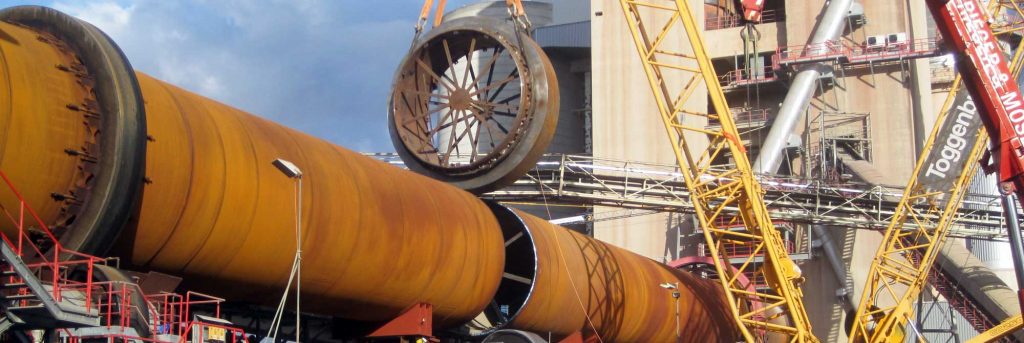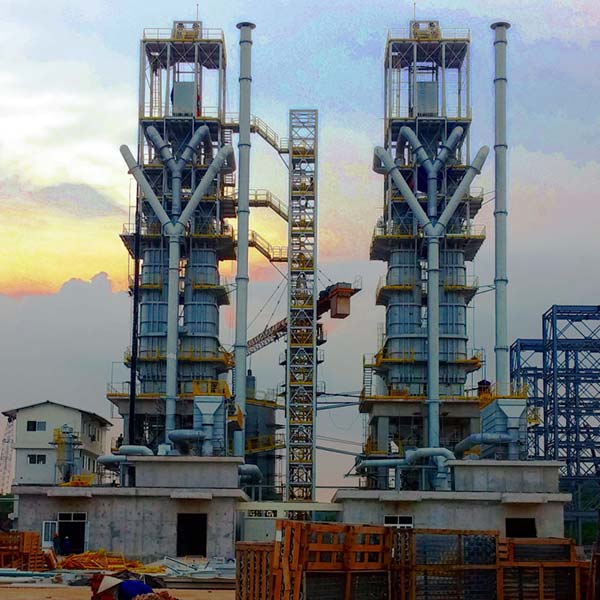Calcination Lines
The process of calcination (thermal decomposition) is generally referred to the reactions in which carbonate minerals such as dolomite, limestone, etc. are converted into oxide minerals at the right temperature and time in the furnace.
Mineral calcination processes are used in various industries such as lime and cement industries, gypsum production industries, glass industries, iron and steel industries, refractory industries, sugar and sugar industries, magnesium production industries, etc.

The conversion of limestone to lime is the most prominent use of the calcination process and calcination derives its name from this process. In the modern cement industry, calcined lime or calcium oxide plays a very important role and increases the adhesion and strength of cement. Of course, this chemical is also widely used in the iron smelting industry.
Dolomite is a magnesium-containing carbonate material. Calcined dolomite has different applications like iron production process, lubricant in steelmaking, refractories, animal feed, water and wastewater treatment, glass and ceramics, biofuel production, etc.
Due to the fast development of iron smelting, steelmaking and cement industries and increasing demand for refractory materials in Iran the need for high-quality calcination lines of various materials is felt more than ever. On the other hand, Iran possesses very large ore reserves of high-quality dolomite and limestone which can be converted to products with more added value.
Aramico is ready to design and implement calcination lines for limestone and dolomite. We can implement calcination lines using shaft furnaces or rotary kilns with various capacities.

Expert design and R&D departments make us capable of executing various industrial projects from idea to implementation.
ARAMICO